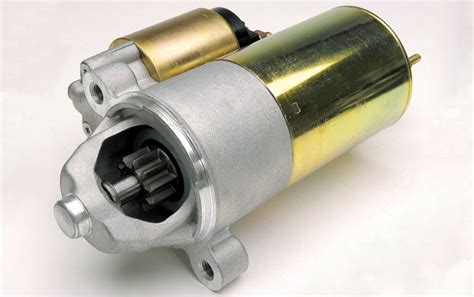How to Tell If Your Car Starter Is Bad: A Comprehensive Guide
Starting your car shouldn't be a gamble. A failing starter can leave you stranded, and knowing the signs can save you time, money, and frustration. This comprehensive guide will help you identify whether your car's starter is on its way out.
Common Symptoms of a Failing Starter
Several symptoms point towards a malfunctioning starter motor. Let's explore the most common indicators:
1. Slow Cranking:
This is often the first sign. When you turn the key, the engine cranks slowly, sluggishly, or struggles to turn over. This indicates the starter motor isn't generating enough power to spin the engine properly. Weak cranking is a clear warning sign that your starter needs attention.
2. Clicking Noise:
A rapid clicking sound when you turn the ignition is a classic symptom. This suggests the starter solenoid is engaging but lacks the power to turn the engine. The clicking sound is a strong indicator that the starter's battery connection or the starter motor itself is failing.
3. No Sound at All:
Complete silence when you turn the key is another potential problem. This could mean a faulty starter, a dead battery, or a problem with the ignition switch. Absence of any sound requires a thorough diagnosis to determine the root cause.
4. Grinding Noise:
A grinding or whirring noise while cranking suggests the starter gear isn't meshing properly with the flywheel. This grinding sound could indicate significant damage and should be addressed immediately to avoid further engine damage.
5. Overheating Starter:
While less common, a visibly hot starter motor after several attempts to start the car can indicate internal problems. Excessive heat suggests the starter is working harder than it should and may be nearing failure.
Diagnosing the Problem: Beyond the Symptoms
While the above symptoms strongly suggest a bad starter, other issues can mimic these problems. It's crucial to rule out other potential culprits:
Check the Battery:
A weak or dead battery will exhibit similar symptoms to a failing starter. Test the battery voltage with a multimeter to ensure it's delivering sufficient power. A low battery voltage will prevent the starter from functioning correctly.
Inspect the Cables:
Loose, corroded, or damaged battery cables can prevent the starter from receiving adequate power. Clean and tighten the cable connections to rule out this simple yet common issue.
Test the Ignition Switch:
A faulty ignition switch can also prevent the starter from engaging. This component requires professional testing to determine its condition. A failing ignition switch will prevent electrical signals from reaching the starter.
When to Seek Professional Help
If you're unsure about diagnosing the problem or if the issue persists, it's best to consult a qualified mechanic. Attempting to repair a starter motor yourself can be risky if you lack experience. A professional mechanic can properly diagnose the problem and recommend the best course of action, whether it's a repair or replacement.
Remember, a functioning starter is essential for reliable vehicle operation. By understanding the common symptoms and diagnostic steps, you can identify a failing starter early and prevent costly breakdowns.
